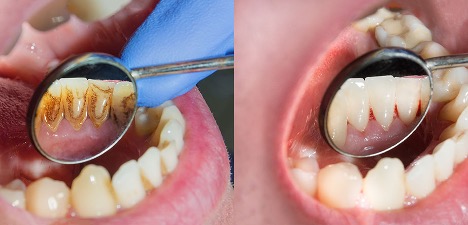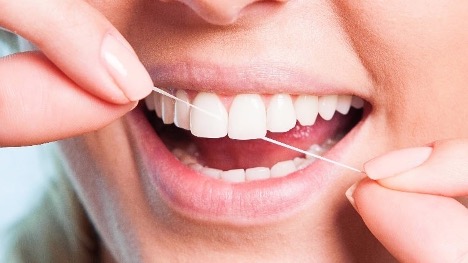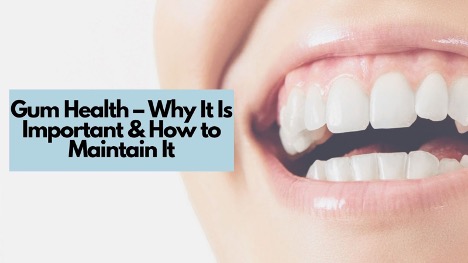Healthy gums are critical for your teeth and your overall health and wellbeing. While it may be easy to overlook just how important they are when you are faced with hundreds of things to do during your everyday life, it’s essential that you take care of your gums now – rather than worrying about them later. Prevention is always better than needing to find a cure. Therefore, when you ask yourself how often you need to take the health of your gums into account, the answer should always be every day!
Why Are Healthy Gums So Important?
Many patients overlook the health of their gums. With an array of things going on in their life, including work, homelife, other injuries, etc., the gums may be at the top of the list of priorities, though they need to be. When was the last time you got a good look at them in the mirror or had them examined by your dentist? Ensuring your gums are healthy is crucial, and here’s why:
1. Healthy gums = a lower chance of heart disease.
Researchers and dental professionals have been studying the link between gums and heart disease for decades. People with gum disease ) are at two to three times the risk of having a heart attack, stroke, or other serious cardiovascular events.
2. They keep your teeth in place
While the condition of your teeth may be impeccable, they still need healthy gums to ensure that they are supported. Your gums serve as a seal, protecting the sensitive tissue that lays underneath. The moment bacteria can sneak through and sit on teeth and gums; tiny pockets begin to form, which then leads to more places for plaque to hide. This will lead to erosion of the gum tissues, eventually exposing the teeth and increasing the likelihood of tooth loss and cavities.
3. Healthy gums keep your entire body healthy
Your teeth and gums play a huge role in the overall health of the body, and when they are unhealthy, the body begins to feel the effects. Bacteria in the mouth can enter the bloodstream, causing serious damage to other parts of the body. By using an antibacterial mouthwash, the amount of bacteria in the mouth is significantly reduced.
What are the Biggest Causes of Unhealthy Gums? 
Excessive plaque buildup is the biggest factor affecting gum health. If you are not brushing your teeth after meals and flossing on a daily basis, you bear the risk of slowly building plaque, which could slowly chip away at your gum health and teeth. Some of the biggest causes of unhealthy gums do include:
- Excessive Alcohol Consumption
- Nutritional Deficiencies.
- Smoking & Chewing Tobacco.
- Crooked Teeth.
- Hormonal Shifts for Females.
- Prescription Medications.
- Family History.
The Risks of Leaving Unhealthy Gums Without Treatment
There are many risks to the gums as a result of plaque buildup. There are two stages that have been identified in the development of gum disease, a common result of poor gum health.
The American Dental Hygienists’ Association suggests that potentially 75 percent of Americans have gum disease and may not be aware of it. Whilst it impacts both men and women of any age, it appears to be a higher risk to those in their late 30s and older.
Gingivitis is the name given to the early stages of gum disease, which, when left untreated, will develop into the advanced stage of gum disease, periodontal disease (periodontitis). Gingivitis can often be treated and need not progress and cause more damage to the gums. Regular check-ups and cleanings can keep further irritation at bay. Symptoms can include swelling and redness of gums, bleeding, consistent bad breath, sensitive teeth, painful chewing, and receding gums.
Periodontitis disease is a key cause of tooth loss, as teeth at this stage are likely to appear loose due to inflammation of the gums and separation of the gums from the teeth. When plaque is not effectively removed, it builds up and wears against the gums and teeth. It can grow in the spaces between teeth and harden, which proves increasingly more difficult to remove and works as a surface for bacteria to latch onto.
Gum disease also affects the rest of the body. Those with periodontal disease are at higher risk of developing other illnesses.
Cardiovascular disease is the cause of 2,400 deaths daily in the United States as a result of the thickening of coronary artery walls (inflammation) and the formation of clots, which can prevent the normal flow of blood to the heart.
Respiratory infections are also a leading cause of death in the US. Research has suggested those with periodontal disease may be at a higher risk of such infection.
Other complications and health issues with potential links to gum disease include diabetes, pregnancy complications, and dementia. Whilst it’s not confirmed that these health concerns are a direct cause and effect of periodontal disease, there are links through the level of inflammation experienced. Those that suffer from diabetes, for example, are often told that they are more susceptible to gum disease and infections.
Treating Gum Disease at An Expert Dental Clinic
As previously explained, Gingivitis can often be treated when visiting the dentist. Regular cleanings and check-ups will help prevent the buildup of plaque, as well as your own daily brushing and flossing.
The treatment of periodontitis disease focuses on controlling the infection rather than curing the disease itself. Scaling and root planing will take place, which works to remove plaque as thoroughly as possible. As plaque gradually develops into tartar on the teeth and gums, the dental hygienist will scale (scrape) the tartar from the gum line and teeth. Deep cleaning methods can vary, and the goal is to ensure the least amount of discomfort possible.
There may also be medications that could be subscribed on a case-by-case basis, which will not alleviate the issue but will support the irritation. Prescribed medication will work to control the level of bacteria produced. All treatments will be discussed at length with your dental hygienist before deciding on the best steps for you.
Some stages of gum disease may also require surgery; flap surgery is often prescribed if the inflammation sees no signs of improvement after deep cleaning and medication, whilst bone and tissue grafts may be suggested in order to support and promote bone growth. This treatment is seen as a restorative measure, also focusing on tissue regeneration.
In order for any treatment to work, it would require that you take your daily steps to maintain good oral hygiene and gum health, including brushing teeth after meals and daily flossing.
Maintaining Healthy Gums
To keep gums healthy and protect them against plaque buildup, you should be brushing after meals and flossing every day. This is one of the most important and consistent ways to ensure that the formation of plaque is prevented. It’s a very simple yet proven method of prevention and one that should be essential to your daily routines. It may also be useful to use an interdental brush or dental sticks to support with daily flossing, and consider the quality of the toothbrush you are using – does it clean all of your hard-to-reach areas?
Another key measure to ensure healthy gums is to avoid smoking. Smoking has proven to have negative effects on several parts of the body and general wellbeing, and gum health is not excluded from the list. Those that smoke 5-10 cigarettes per day are at least three times more likely to suffer from unhealthy gums and the ailments that come with this, whilst those that smoke more than ten cigarettes per day are up to six times more likely to suffer from gum disease. Smoking can seriously increase the number of bacteria that accumulate in your mouth, contributing to poor oral hygiene and the failure of your mouth’s ability to fight off infection. Without the ability to fight off infection, the chances of plaque and tartar build-up increase.
A healthy diet is also instrumental in the maintenance of healthy gums. Ensure you do not overindulge in sugars whilst including foods high in omega-3 fatty acids (often found in fatty fish). Foods like vegetables, fruits, nuts, and vegetable oils are also effective nutrients and work to suppress inflammation of the gums. Drinking green tea can also help to control bacterial infections and promote good oral health.
The sooner you become aware of the issue, the better. Pain is not always present with gum disease, and sometimes there are not any visible signs to begin with, which is why many adults are unaware that they suffer from periodontitis.
Noticing the Signs; Contact Sheehan Dental for Gum Disease Treatment in Palos Park, IL
If you do spot any of the signs associated with gum disease, raise the alarm as soon as you can. Swollen, bleeding gums are often a warning sign and must not be ignored. Other warning signs can include gums that have pulled away from teeth and the widening of space between teeth. Pay attention to the signs your body gives you; it raises its own alarm bells for you to take note of.
Dr. Sheehan and the entire staff at the clinic encourage patients to discuss any concerns or fears related to oral wellbeing and gum health. If you have any questions regarding preventing gum disease and improving oral hygiene, do not hesitate to ask. Get your gums checked immediately by scheduling an appointment online or visiting our Palos Park Dental Clinic.

